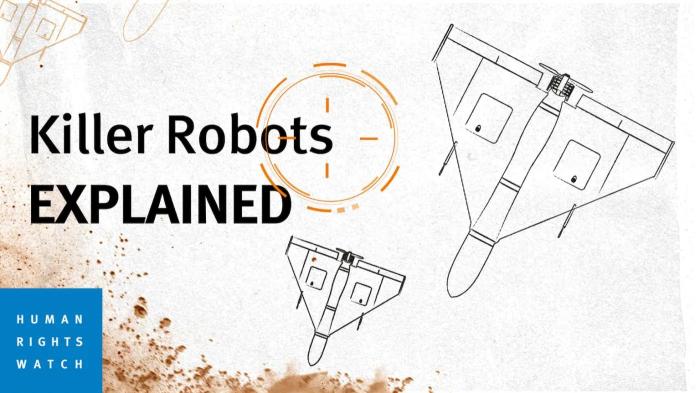United Nations Secretary-General António Guterres and President of the International Committee of the Red Cross Mirjana Spoljaric have a new message for governments: “act now to preserve human control over the use of force.” In a joint appeal, the leaders urge the UN’s 193 member states to take decisive action and negotiate a new international treaty by 2026 to ban and regulate autonomous weapons systems.
Guterres had first set out this bold timeframe in his “New Agenda for Peace” briefing paper in July. The proposed new treaty would be a legally binding instrument covering weapons systems that select targets and apply force without human intervention.
Such a treaty should prohibit autonomous weapons systems that function in such a way that their effects cannot be predicted. Clear restrictions are also needed for all other types of autonomous weapons to ensure compliance with international law and ethical acceptability.
This high-level proposal and its timeframe for completing negotiations provide useful guidance for states keen to move forward as current diplomatic talks fail to progress to a credible outcome.
Many of the 100 states on record as supporting negotiations toward a legally binding treaty have recently been reiterating that aim. In February, more than 30 countries from Latin America endorsed the Belén Communiqué, acknowledging the need “to promote the urgent negotiation of an international legally binding instrument, with prohibitions and regulations with regard to autonomy in weapons systems.” In September, 15 Caribbean states endorsed a CARICOM declaration on the human impacts of autonomous weapons at a meeting in Trinidad and Tobago.
A proposed UN General Assembly resolution due to be voted on at the end of October could serve as a vital step toward an international treaty. The resolution, put forward by Austria and co-sponsored by at least 10 other countries, seeks to ensure that all states can share their views on autonomous weapons and on how to appropriately respond to the dangers and risks raised.
The General Assembly provides an inclusive and accessible forum in which states from all regions can contribute. Tackling the killer robots challenge under its auspices would allow greater consideration of many challenges and concerns that have been overlooked, including ethical perspectives, proliferation, and impacts on international security.









